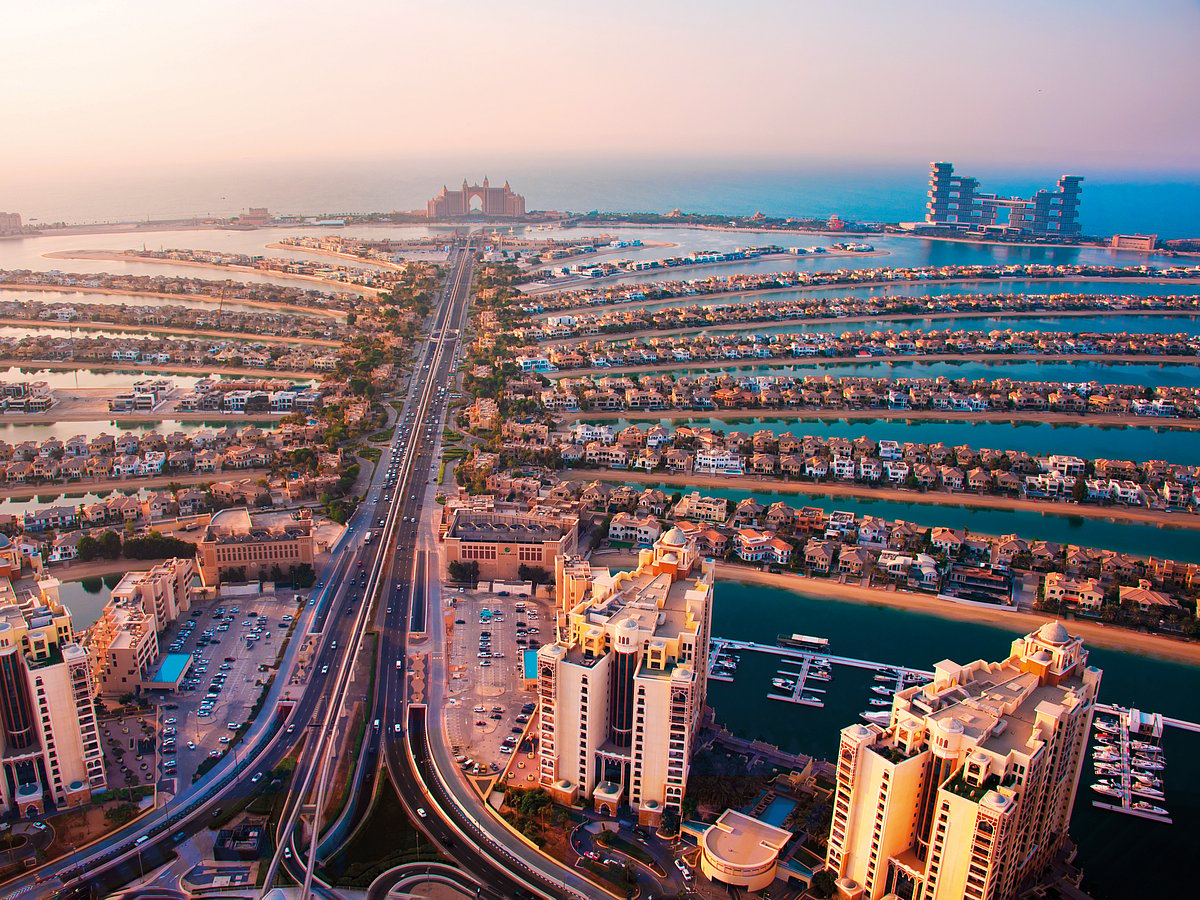Sale of $10m homes breaks records in Q1 in Dubai
Palm Jumeirah is most sought-after location, registers 34 sales worth $562.8m

Dubai recorded 111 sales of homes priced above $10 million in the first quarter of 2025, underscoring the emirate’s ongoing appeal among ultra-wealthy buyers and the sustained strength of its luxury property market.
According to a report released by Knight Frank on April 22, this marks the highest Q1 performance on record — up 5.7 per cent year-on-year — with the total value of transactions reaching $1.9 billion (Dh6.9b).
The Palm Jumeirah retained its crown as the most sought-after location for ultra-prime real estate, registering 34 sales worth $562.8 million.
Emirates Hills followed closely, with 15 transactions totalling $356.7m. Notably, the area was home to the quarter’s most expensive deal: a six-bedroom villa sold in January for a staggering $106.3m — originally purchased for just $6.6m in 2015.
“Dubai’s luxury residential market continues to defy gravity,” said Faisal Durrani, partner and head of research, MENA, at Knight Frank. “Demand — especially from international buyers—remains unmatched globally. The city has firmly established itself as the epicentre of ultra-luxury real estate, outpacing legacy markets like New York, London, and Hong Kong.”
Dubai has been the most active market for sales of $10 million-plus homes for the past two years, eclipsing both London and New York. The emirate registered 435 home sales of $10 million-plus last year, edging past the 434 transactions recorded in 2023. During Q4 alone, 153 residential sales in excess of $10m were completed – an all-time record.
Dubai also saw 12 deals surpassing the $25m mark, further highlighting the appetite of global ultra-high-net-worth individuals for exclusive trophy properties.
This heightened demand is placing notable pressure on supply — particularly in Dubai’s prime and ultra-luxury residential segments.
In the Dh2,000–3,000 per square foot (psf) range, which covers many high-end properties, new home deliveries dropped by 57 per cent year-on-year.
A similar trend was seen in the Dh3,000–5,000 psf bracket, where supply declined by 39 per cent, according to Knight Frank. The most significant shortage, however, is in the ultra-luxury tier.
In 2023, virtually no new villas were delivered in the Dh5,000+ psf category. By 2024, only 16 villas had been added to this elite segment—highlighting just how limited the availability is at the very top of Dubai’s residential market.
Nicholas Spencer, partner at Knight Frank, notes, “Dubai has cemented its position as a top destination for HNWIs seeking both personal residences and investment opportunities. Our research indicates that global HNWIs have earmarked approximately $4.4bn for investment in Dubai’s residential market, reflecting a 76 per cent increase from 2023.”
The overall residential market in Dubai remains robust, with transaction volumes reaching nearly 170,000 deals in 2024, valued at around $115b.
Notably, homes priced at $10m or more accounted for roughly 6 per cent of total sales value, emphasising the high-end segment’s significance. Wealth levels strongly influence buying patterns. For instance, 78 per cent of those with personal wealth exceeding $15m are interested in Dubai properties, with the average purchase budget among GCC-based HNWIs at $3.1m.
Among ultra-rich investors, 25 per cent are willing to spend between $60m and $80m on a Dubai residence, while 16 per cent are contemplating purchases exceeding $80m.
GROWTH OF FAMILY OFFICES
As the number of ultra-high-net-worth individuals (UHNWIs) continues to rise across the region, Knight Frank has also observed a parallel surge in the establishment of family offices — wealth management structures designed to preserve and grow assets across generations. These entities are increasingly becoming integral to the financial and investment ecosystem in the Middle East.
Buthainah Albaity, Partner – Head of Private Capital and Family Enterprises, MENA, says: “Countries across the region are competing vigorously to attract family offices, recognising their potential to fuel investment, drive innovation, and support economic sustainability.”
According to UBS, an estimated $84 trillion is expected to pass from one generation to the next via family offices globally over the next two decades. In the Middle East, this generational wealth transfer is already gaining momentum.
For instance, in Saudi Arabia, many family-run businesses are shifting from second- to third-generation leadership. However, a number of firms are in their first generational cycle, reflecting the relative youth of many enterprises. Dubai and Abu Dhabi, with their advanced regulatory frameworks for family offices, are emerging as global hubs — not only for regional families but also for international ones. Trust structures established in these jurisdictions offer smooth wealth transition, confidentiality, and effective cross-border asset management, making them increasingly attractive.
Sign up for the Daily Briefing
Get the latest news and updates straight to your inbox
Network Links
GN StoreDownload our app
© Al Nisr Publishing LLC 2026. All rights reserved.